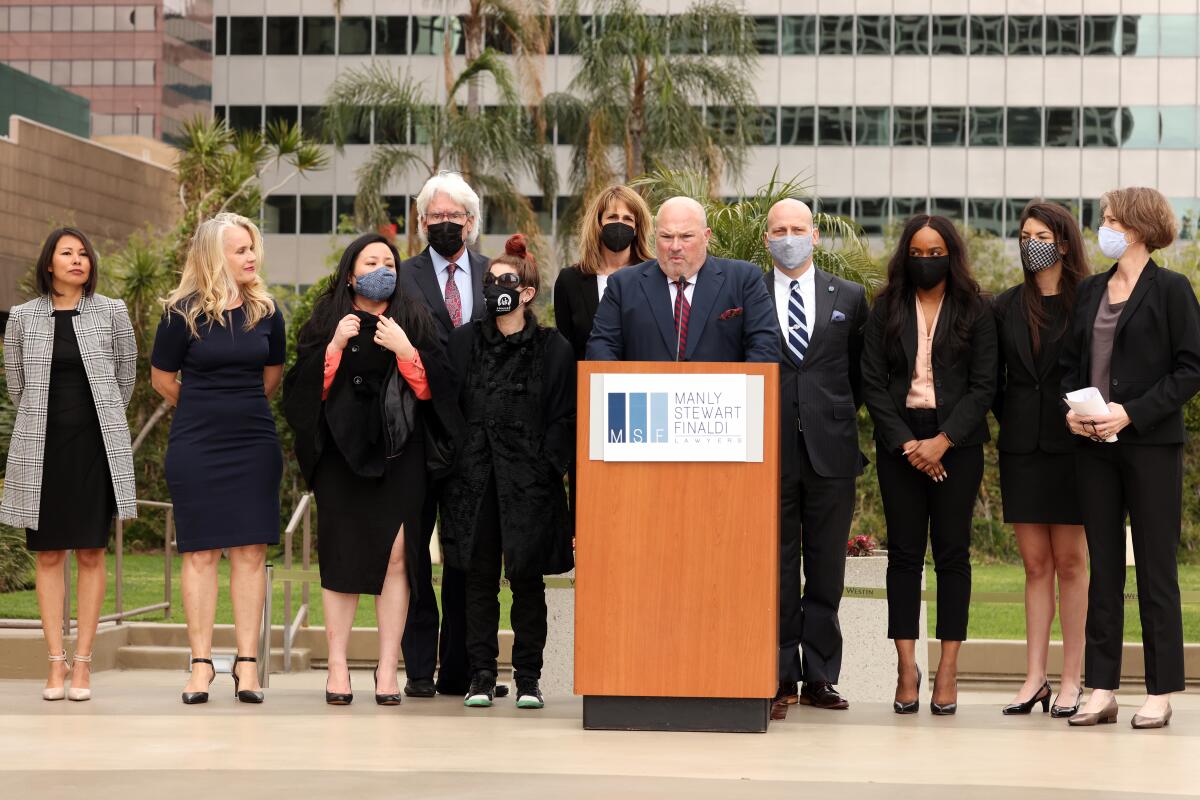USC’s $1.1-billion payout: Here is who gets the settlements and other details

- Share via
The $1.1-billion payout to former patients of USC gynecologist George Tyndall, who was accused harassing and assaulting a generation of female students, ranks as the largest sexual abuse settlement in American higher education.
USC has made a series of legal settlements with former patients of Tyndall, and the largest of those — for $852 million — was announced Thursday.
This settlement far exceeds the scale and cost of other sex abuse scandals, including those that roiled the Archdiocese of L.A., Michigan State University and Penn State, and will result in hundreds of women receiving money from their alma mater.
Here are the basic facts:
The settlements
- A final group of 710 women suing the university in Los Angeles Superior Court settled their claims Thursday for $852 million.
- USC previously agreed to pay thousands of other alumnae and students $215 million in 2018 as part of a class action settlement reached in federal court. USC also agreed to pay up to $25 million in legal fees in this case, putting the total cost at about $240 million.
- Women who were part of Thursday’s settlement in state court had to explicitly opt out of the 2018 federal class action settlement.
- A group of about 50 other women with individual state court cases were previously settled for an amount that has not been made public.
Years of legal battles
- The sole full-time gynecologist at the student health clinic from 1989 until 2016, Tyndall was accused of preying on a generation of USC women.
- After The Times exposed the years of misconduct accusations against Tyndall in 2018, USC was sued by hundreds of former female students who accused the gynecologist of sexual harassment, inappropriate touching, assault and sex abuse.
- The university hired at least three top law firms to defend against the former patients’ lawsuits in federal court, including Gibson, Dunn & Crutcher and Fraser Watson Crouch. The cost of USC’s legal defense is separate from the settlements and ran into the tens of millions of dollars, according to the university’s general counsel.
- From 2018 until this spring, USC’s lawyers have repeatedly sparred with lawyers representing the hundreds of former Tyndall patients. The women’s attorneys had dozens of USC administrators and employees sit for questioning under oath, including former provost Michael Quick, former general counsel Todd Dickey and nurses and student clinic staff.
- Tyndall was also questioned under oath but he repeatedly invoked his 5th Amendment right against self-incrimination. Tyndall has been charged with multiple counts of sexual assault by Los Angeles County prosecutors and is awaiting trial.
- Former USC President C.L. Max Nikias was scheduled to be questioned during a deposition this winter, but it was postponed amid settlement negotiations and ultimately never took place.
The payouts
- The 710 women who were part of Thursday’s settlement will receive an average payment of $1.2 million, although the exact distribution of the money was expected to vary by individual allegations and ultimately be determined by a retired judge in coming months. Lawyers for the women expected some would receive in the middle to low six figures, while other women could receive more than $2 million, depending on the severity of their claims.
- USC will pay the settlement over two years. The first payment will be in August 2021, and the second will occur in August 2022.
- To pay for the enormous cost, USC will rely on insurance proceeds, litigation reserves, the deferment of capital projects, the sale of some “nonessential assets” and cuts to discretionary spending like travel and entertainment.
- No philanthropic gifts, endowments funds, or tuition will be used in the settlement, according to USC.
- The thousands of former patients who are part of the class action settlement have already received a minimum payment of $2,500. Some patients were eligible for higher awards — up to $250,000 — depending on what they experienced. Those former patients have begun this month to receive notice of how much they were awarded.
RELATED
More to Read
Sign up for Essential California
The most important California stories and recommendations in your inbox every morning.
You may occasionally receive promotional content from the Los Angeles Times.












